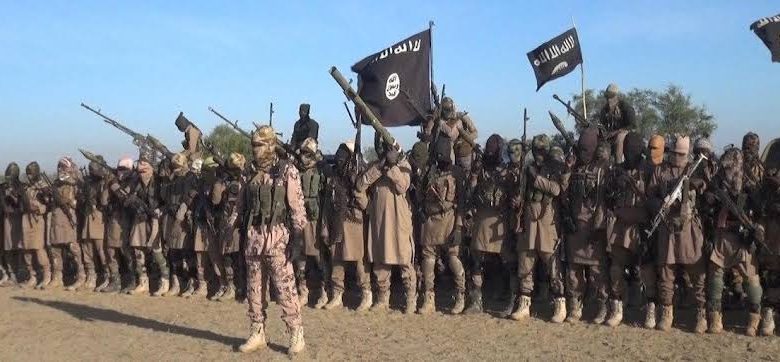Kidnapped UNICEF nurses escapes ISWAP captivity after six years

A Nigerian nurse, Alice Loksha, abducted by Islamic State West Africa Province (ISWAP) fighters in 2018, has regained her freedom after six years in captivity. The military presented Loksha on Friday at a press conference in Maiduguri, Borno State, where details of her ordeal and escape were disclosed.
Loksha, a health worker with UNICEF, was kidnapped during a March 1, 2018, attack on a humanitarian camp in Rann, Borno State, which housed 60,000 displaced people. The raid resulted in the deaths of three UNICEF workers, eight soldiers, and two International Committee of the Red Cross (ICRC) midwives, Saifura Khorsa and Hauwa Liman. While Khorsa and Liman were later executed by ISWAP, Loksha, a Christian, was spared but forced into two separate marriages with ISWAP commanders during her captivity.
Major General Kenneth Chigbu revealed that Loksha escaped on October 24 from an ISWAP camp on Dogon Chukwu Island in Lake Chad. She made contact with Nigerian troops in Geidam, Yobe State, on October 29. Another woman, Faina Ali Kelawos, who had been held captive by ISWAP for two years, also managed to escape and appeared at the press briefing.
While in captivity, Loksha had a child with her first ISWAP “husband,” Abu Omar, who was later killed in a clash with Nigerian troops. She was then forced to marry another commander, Abu Simak, who was eventually banished by his comrades.
Before her abduction, Loksha was married with two children. A UN source stated that her return presents complications, as her husband had remarried during her absence, assuming she was dead. The source also expressed concerns about the stigma Loksha and her child may face upon reuniting with her family.
ISWAP, which split from Boko Haram in 2016, has been responsible for mass kidnappings and violence in the region, often targeting women and children for use as sex slaves or suicide bombers. The 15-year insurgency has claimed over 40,000 lives, displaced two million people, and spilled into neighboring countries, prompting a regional military coalition to counter the group.
The military has reaffirmed its commitment to addressing the crisis and supporting survivors like Loksha as they reintegrate into society.





